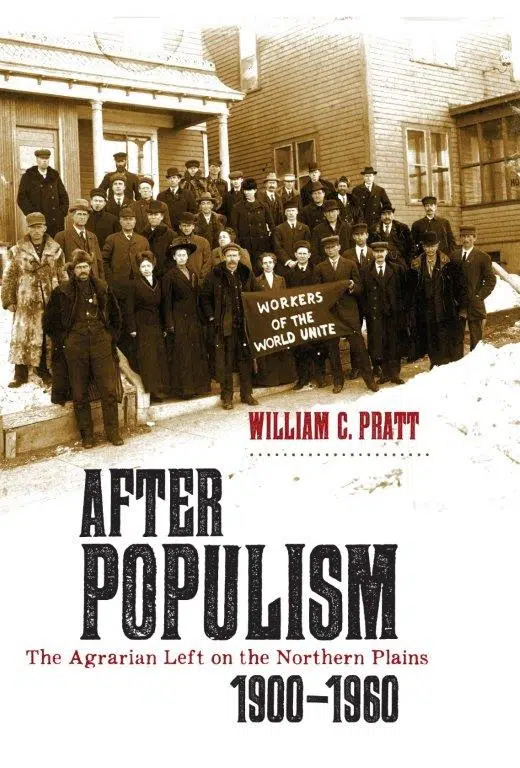The latest book published by the South Dakota Historical Society Press explores the activism of left-wing agricultural groups on the Great Plains.
“After Populism: The Agrarian Left on the Northern Plains, 1900–1960” is a collection of essays by historian William C. Pratt, professor emeritus at the University of Nebraska-Omaha. The book documents how several distinct yet related rural political movements evolved in the twentieth century and assesses their impact across space and time.
Historians have given a great deal of attention to the rise of Populism, a farmer-led movement calling for sweeping economic reforms that become a major political force in several corners of the nation during the 1890s. While the heyday of Populism was seemingly brief, its core ideas remained popular in communities in North and South Dakota, Montana, Minnesota, Nebraska, Iowa and Canada’s prairie provinces well into the following century.
“After Populism” reveals how a diverse range of voices pushed to improve conditions for farmers and rural communities on the plains during decades of significant political transition. Pratt explores farmers’ relationships to Socialist groups; the persistence of radicalism in isolated plains communities; agrarian radicals’ involvement in local affairs; women’s roles in radical farm groups; the importance of the Farmers Union in regional and national politics; repeated, unsuccessful attempts at third-party organizing; and the gradual decline of progressive farm protest in the late twentieth century.
Pratt’s articles about rural politics have appeared in scholarly journals—including South Dakota History, Montana: The Magazine of Western History, and Great Plains Quarterly—since the early 1980s. By compiling revised versions of several of these essays, as well as unpublished material, “After Populism” serves as both a career retrospective and a call for further research into a rich yet understudied topic.
“After Populism: The Agrarian Left on the Northern Plains, 1900–1960” is available for $34.95, plus shipping and tax, and can be ordered directly from the South Dakota Historical Society Press at sdhspress.com or by calling 605-773-6009.

Book cover image courtesy of the South Dakota Historical Society.









Comments